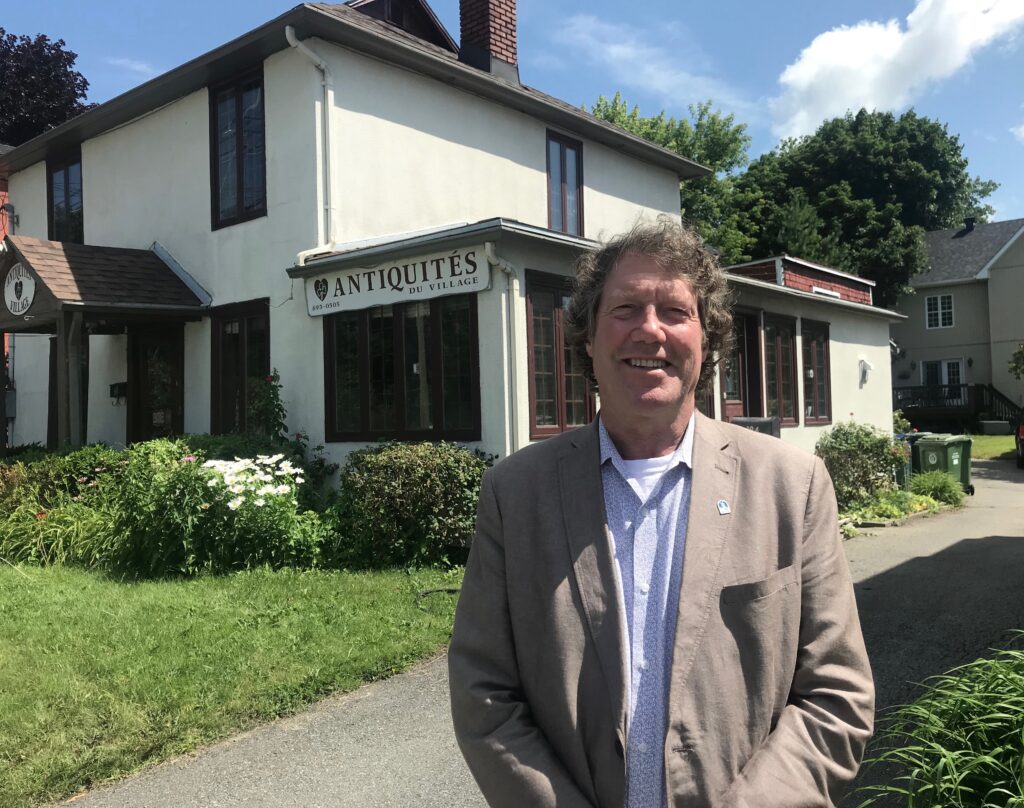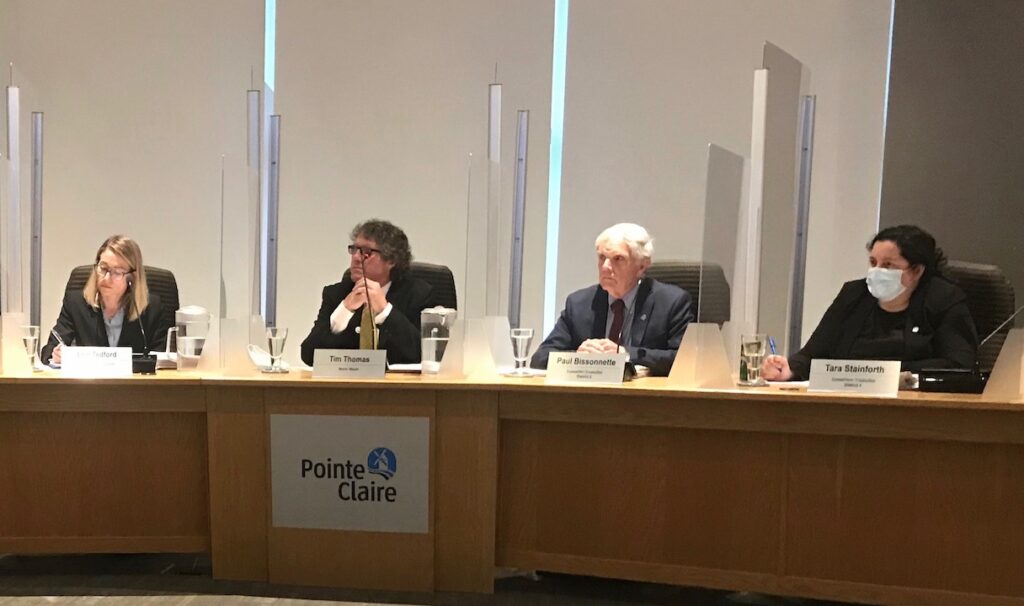After a career in academia and government, Tim Thomas is Pointe-Claire’s recently elected mayor at a time when the city is at a critical point in its development.
This is the first in a series of profiles of West Island mayors, in which the mayors discuss their backgrounds and what inspired them to seek public office.

“My closing chapter, my end game.” This is how Tim Thomas refers to his current role as Pointe-Claire’s mayor.
If there were an apt metaphor here, it would be that of a poker player ready to stake everything on one final big bet. “I’m 62, so this will be the last job of my career,” he says. “I want to do good and get out. I’m not a career politician, so I’m not afraid of not being reelected.”
Following an unsuccessful bid for the office in 2017, Mr. Thomas won Pointe-Claire’s mayoralty in a close race last November, upsetting the incumbent, John Belvedere, at a time when emotions among residents were (and continue to be) intense about the city’s future.
Mr. Thomas was well acquainted with political parrying, having worked in the Privy Council Office under Prime Minister Jean Chrétien following a longish stint as an academic.
His career has been an unusual combination of seemingly diverse vocations: renovator, university lecturer, tenured professor, civil servant, rock band manager, writer of academic treatises, consultant, antiques dealer. And now, elected official.
“I love cities and the development of cities,” Mr. Thomas says. “They’re beautiful creatures that evolve and take shape. We owe it to this beautiful creature that we call Pointe-Claire to let it evolve in a way that we won’t regret.”
With the intention of preventing future regret, he’s heading up a council that is more divided than any in recent memory. And with battle lines drawn over the question of future development in the municipality, social media channels feature almost daily sniping about how much densification Pointe-Claire can and should shoulder. For the moment, a temporary moratorium on development is allowing all parties a time-out, albeit a short one.
Tim Thomas is well acquainted with politics. A native of Notre Dame de Grace, he did a bachelor of arts in history at Queen’s University, followed by a masters degree in public policy and public administration at Concordia University (“to make myself marketable”), and a PhD in public administration and political science at Carleton University. “All throughout my education, I ran my own construction company with my best friend during the summers,” he said. “We built decks and awnings.”
Throughout the school year, while he was studying toward his master’s degree, Mr. Thomas worked as a sessional lecturer at Concordia and McGill. He continued to teach while doing his PhD at Carleton, dividing his time between Ottawa and Montreal.
After finishing his PhD in 1994, he landed a position teaching political science at Royal Military College in Kingston in 1995. “I was teaching in French and it was one of the biggest challenges of my life,” he said. “I had a Québecoise girlfriend, who translated my lectures and that helped. But to the merriment of my students, I would confuse such words as crevette (shrimp) and cravate (necktie).”
Concurrent to all this career activity, he managed a Montreal rock band called the Stone Doctors, published articles in academic journals, and wrote and published a couple of books. He’d received offers of academic posts, one at Johns Hopkins University, the other at Saint Mary’s. But by the late 1990s, he was working as an analyst in the Privy Council Office, writing policy briefs on post-referendum policy for Quebec. It was a 24/7 kind of job that didn’t combine well with his new status as a married man with a child. “My boss and my wife were pulling me in different directions,” he said. “I wasn’t going to survive the job and be married.”
So in 1999, after doing some consulting work, Mr. Thomas and his wife bought property in Pointe-Claire Village where she opened a spa and he opened an antiques store: Antiquités du Village. “A lot of people thought I was nuts going from the Privy Council Office to an antiques business but I loved Pointe-Claire Village and it was a perfect location for it,” he said. “I always kept an eye on Pointe-Claire politics. I moved here because I thought the city was very well run.”
But a few years ago, he became concerned about changes in the neighbourhood: a redevelopment of Cartier Avenue that left fewer parking spaces for clients of local businesses. A bike path on St. Louis Avenue that he viewed as dangerous. The demolition of the historic Pioneer bar and restaurant. “The council wasn’t listening,” he said. “The Pioneer was being sold as a moribund, derelict building. It wasn’t perfect, but it could have been saved. I was seeing why I wanted to become mayor.”
However, the issue that finally ignited that desire was the development of Hymus Boulevard, west of St. Jean, and the resulting densification. “There are food deserts and a lack of green space for that development,” he said. “I didn’t like what was happening in our beautiful city. It was being developed haphazardly without coordination. It’s what not to do in urban planning.”
What Mr. Thomas may not have foreseen was how polarized the debate over development had become.

Tensions run high on the municipal council, where six of the eight councillors from the previous council were reelected in November. The mayor and two new councillors are the recent arrivals. “I could not have foreseen how little power mayors actually have in relation to council,” he said. “I was hoping to get more people on council who support me.”
Mayor Thomas believes that the majority of Pointe-Claire residents do not want accelerated densification in their city and he hopes that the issues can be resolved in a civil manner. “I owe it to Pointe-Claire and the people who supported me to see this through,” he said. “It’s my last job.”








